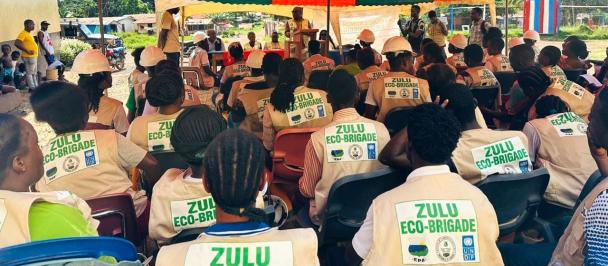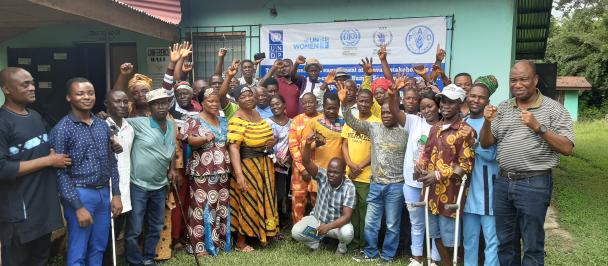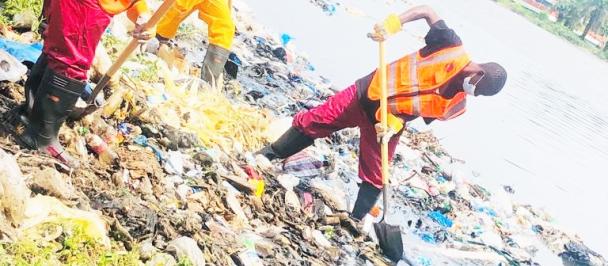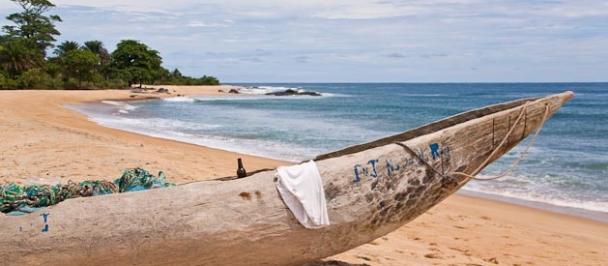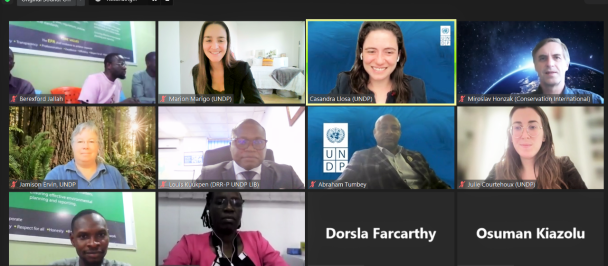Mainstreaming Energy and Environment Programme
Overview/Background
Liberia has rich and diverse natural resources and is a global biodiversity hotspot. Linkages between socio-economic and environmental issues in the context of sustainable development in Liberia and in the sub-region, especially for women and marginalized groups, are critical.
Climate change, deforestation and threats to protected areas are likely to affect various sectors including agriculture, fisheries, forestry, hydropower generation and health. Rising sea levels have accelerated coastal erosion, damaging infrastructures and affecting livelihoods of coastal communities.
Low-lying areas are frequently flooded due to inadequate drainage systems and poor waste management. Early warning systems in Liberia remain nascent.
It is estimated that a one-meter rise in sea-level will place 230,000 people at risk and cause the loss of 2,150 km of land valued at US$250 million.
Increased rainfall and flooding will lead to a greater vulnerability to disease such as malaria, cholera and diarrheal.
Planning and resource allocation are not evidence-based due to limited data and knowledge of current climate risks and anticipated climate change impacts.
Liberia ranks amongst the lowest countries in the world in terms of electrification and energy access. 82.3 percent of the total population and 96.9 percent of the rural population having no access to electricity (HIES, 2016).
Charcoal and firewood are the main sources of energy for cooking and heating for an estimated 95 percent of the population. Only 2 percent of the population have access to clean fuels and technologies for Cooking.
With a humid, tropical climate, an average temperature of 27 Celsius (81 Fahrenheit) and a monthly solar radiation on horizontal surface ranging between 4 KWh/m2/day during the rainy season and 6 KWh/m2/day during the dry season, Liberia’s solar energy potential is significant.
The country has the potential to generate 1,400 to 1,500 KWh/p of solar energy.
Objectives
UNDP, through the Energy and Environment (E&E) Programme, proposes to tackle these challenges within a broader development context that would facilitate synergy amongst the four thematic/focus areas of UNDP’s work:
1. Livelihood Diversification, Disaster Resilience and Climate Change;
2. Biodiversity Conservation Ecotourism and sustainable Land Management;
3. Renewable Energy Access and
4. Waste Management.
In line with the CPD (2020-2024), the E&E Programme is providing support to promote diversified and inclusive economic growth along a low carbon and climate resilient pathway underpins investments in sustainable and environmentally friendly agriculture, food security, job creation and improved resilience to climate change and natural disasters in Liberia.
These activities are carry out through various projects including the “Mainstreaming Energy and Environment into Development Plans in Liberia” project.

 Locations
Locations